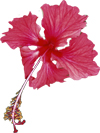Celebrating Our Essential Companions of Our Planet
Over numerous decades and generations, the world renowned song “Imagine” by John Lennon has touched the hearts of billions of people and made us all contemplate, at some time, living in a world united in peace – a oneness. His lyrics have inspired us to imagine a world without a heaven, a world without countries, a world without religion, without possessions, a world without a need for greed or hunger. These were, and still remain, very thought provoking and profound words to encourage world peace. But, sadly enough, here in the year 2011, these things are still so hard to imagine. Wars continue to rage around the world as does greed and hunger. John Lennon wrote these lyrics in the 1970’s – the era of the peace movement that was born due to the Vietnam War.
Throughout the 80’s and the 90’s and now into the 21st century, the environmental movement has replaced the compelling peace movement and has been waging its own protest for the protection of our planets natural environment. I await the day that a songwriter will write a similarly inspirational song about “imagining a world – if you can – without plants”. We have all seen photos of other planets and our moon – barren surfaces, void of any plant life or visible living organisms. Close your eyes and try to imagine what this earth would look like physically – without plants; how the landscape that we see every day would be so drastically and depressingly different. What would a day be like on this earth without the innumerable and inexhaustible “gifts” that plants provide?
The fact of the matter is that without plants – nothing else would matter. Period. Plants are our most fascinating, precious, valuable, reliable and essential companions on our planet. You, me, the birds and the bees, your dog, your family, the iguanas and monkey’s – no large living organism could survive here on this planet without them. They are a major link in our world’s natural biological system that cannot be removed or replaced. They provide us humans with the foods that sustain and nourish us; the beverages that quench our thirst; the medicines that soothe our aches and pains and cure our aliments; the materials to construct and furnish our homes; the shade that saves us from a relentless sun; the filtered air that we breath; and last but not least, unsurpassed, never-ending beauty. These are the most obvious manners in which plants keep us alive and flourishing, but this list is almost endless.
I recall a very simple but enlightening exercise that we did in grade school science class that is worth repeating. Stop what you are doing at this moment and take a look around where you are sitting and notice everything within a ten foot radius that was derived from a plant. Throughout your daily routine – from the time you get up in the morning to the time you go to bed at night – take notice of everything you come in contact with or consume that is a direct or indirect product of some type of plant. Even now, in our more-advanced age of technology and plastics, we rely heavily on plants and plant-derived products. They are irreplaceable.
Scientific advancements such as genetic engineering/altering of agricultural crops are a desperate attempt by researchers to keep up with modern times and help farmers to improve the cost efficiency of large–scale food production. Unfortunately, many of these advancements such as herbicide resistant soybeans (where farmers spray over the top of the crop to kill the weeds) are not only producing a more toxic product, but are also producing new strains of resistant weeds. It is almost humorous that scientists believe that they can out-wit plants.
A better example of modern plant advancements is the use of certain bamboo species in place of wood for construction and furnishing materials. This “discovery” is an attempt to discourage the destruction of the rainforests for tropical hardwoods used in building and provide other natural sources of materials that can be easily and quickly cultivated. Nothing will ever replace the unparalleled beauty of some of the tropical hardwoods, but at last, what indigenous people have been doing for centuries is finally catching on and being employed in more modern ways. Similarly, bamboo and hemp are also being used as alternative materials for making fabric for clothing.
Medicinal plants are undoubtedly the greatest natural “gift” to mankind and the ones that are the most amazing. The incredible complex compounds that exist in many plants have boggled the minds of many a scientist and are feverishly being extracted and/or synthesized in pharmaceutical laboratories world-wide for use in modern, over -the-counter drugs. Once again, what for centuries indigenous man was utilizing for his own benefit is only now being seriously explored by modern man. Man has not even reached the tip of the iceberg in his pursuit and attempt to utilize plants in the world of modern medicine. I am convinced that for every ailment known to man, there is plant antidote somewhere on the planet to conquer it. Perhaps it is a game of hide and seek.
The mysterious, fascinating and radiant world of plants is celebrated everyday at botanical gardens across the globe. These facilities are not just luxury tourist attractions displaying pretty flowers and colorful gardens, but they are institutions that are absolutely essential to our planet by keeping species from extinction through their cultivation and their preservation. They are plant museums and their roles on this planet are not frivolous, but vital. We do not want to imagine our planet without plants – our essential companions on our planet – ever.
“They may say I’m a dreamer, but………..”. The future botanical garden in Quepos will exist to celebrate the spectacular and valuable tropical plants of our region and our planet.
Donna is a Horticulturist and has been living and working in Manuel Antonio for 7 1/2 years. She consults, designs, installs and maintains gardens for private homes and hotels and also develops botanical trails. Donna is the founder and first Director of the Botanical Garden of the Ozarks and is pursuing the development of a botanical garden in, and for, the Quepos area. [email protected], 2777-5149


